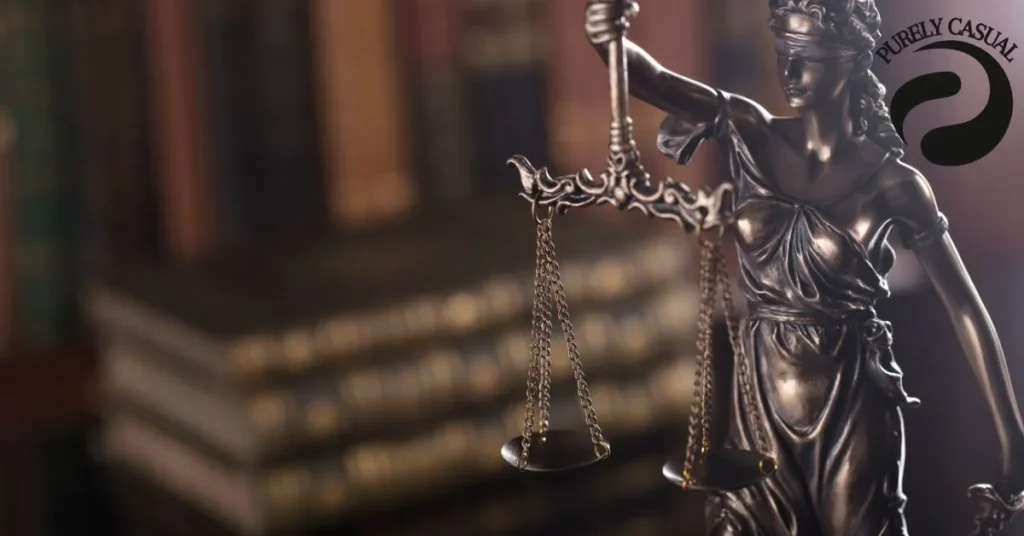The 1 818 347 7080 Jural Society is a unique legal organization. It operates independently from traditional legal systems and follows its own rules and principles. This group is part of a broader movement focused on alternative governance.
A Jural Society is a group of individuals who come together to form their own legal system. They believe in self-governance and the idea that people can create their own laws. These societies often operate outside mainstream government structures.
The 1 818 347 7080 Jural Society is one such example. It represents a community of people who have established their own legal framework. This society emphasizes personal freedom, legal autonomy, and self-determination.
Jural Societies like this one trace their roots to historical legal traditions. Over time, they have evolved to become part of modern movements that challenge traditional governance. Their aim is to offer an alternative to centralized government control.
Understanding the 1 818 347 7080 Jural Society requires knowledge of how independent legal systems work. These systems are not bound by the laws of any particular state. Instead, they rely on their own sets of rules to govern themselves.
In recent years, alternative governance systems have gained more attention. Many people are interested in finding new ways to organize society. The 1 818 347 7080 Jural Society represents one such effort to explore legal independence.
By learning more about this society, we can better understand how individuals can create and operate their own legal systems. This approach offers a new way of thinking about governance. It opens the door to a future where people have more control over their own lives and laws.
Also read:https://purelycasual.com/mydearquotes-com-quotes-archives/
Table Of Contents
Historical Background and Evolution of Jural Societies
Origins of Jural Societies in Legal History
Jural Societies have deep roots in legal history. They originated as communities that sought to create their own governance systems, apart from the centralized government. These groups formed their own laws and have existed in various forms across different periods.
The core idea behind these societies is that people can govern themselves. This concept emerged during times when communities wanted independence from overarching authorities. Historically, such societies were seen as an alternative to the state’s control.
The Sovereign Citizens Movement and Its Influence
In more recent years, the sovereign citizens movement has had a significant impact on Jural Societies. The movement promotes personal legal autonomy and a rejection of state-imposed laws unless explicitly consented to by individuals.
Members of this movement often believe that they are not subject to the government’s legal frameworks. Many Jural Societies, including the group related to the original phone number, adopt similar principles of legal independence.
Key Events Leading to the Formation of Independent Legal Societies
This specific legal society was born from individuals’ desire to escape mainstream legal constraints. The members sought to create their own laws and governance structure to have more control over their legal matters. They felt this offered them greater freedom and authority.
This movement also draws from historical moments when people fought for independence from state controls. These historical influences have helped shape the current goals and structure of this alternative legal group.
Evolution of Jural Societies into Modern Movements
Over time, Jural Societies have evolved into modern movements that challenge traditional governance systems. These groups, including the independent legal society in question, aim to create their own laws and legal systems. Their ultimate goal is to offer individuals legal autonomy and self-governance.
As societies become more complex, Jural Societies adapt to address contemporary legal challenges. The evolution of these societies reflects a broader trend toward decentralized governance.
Principles and Structure of the Legal Society
Core Principles Guiding the Legal Society
At its foundation, the society operates on the principle of self-governance. Members of the society believe they should have the power to create and enforce their own legal framework. This is central to the society’s mission of promoting personal freedom and autonomy.
One core principle is that every member has a say in how laws are created. This ensures a democratic process, where no single authority controls decision-making. Instead, laws are formed by the group collectively.
The society also values community involvement. Each member contributes to the legal structure and participates in decision-making. This shared responsibility keeps the legal framework dynamic and relevant to its members’ needs.
Organizational Structure: Leadership, Membership, and Roles
Unlike traditional legal systems, this society has no hierarchical leadership. All members have equal standing, and decisions are made collectively. There is no centralized figure of authority like a judge or politician.
Membership is voluntary, and members agree to abide by the society’s rules once they join. In return, they gain the right to participate in creating laws that will govern them.
Roles are equally distributed among members, ensuring that everyone is part of the law-making and enforcement processes. This system encourages engagement and gives all participants an active role in maintaining the society.
Decision-Making Processes within the Society
The society uses a democratic decision-making process. Every member’s opinion is valued, and decisions are made through group discussions and consensus-building. This collective approach ensures fairness and equality.
Unlike traditional courts, where laws are imposed from above, this society allows members to directly influence legal outcomes. This ensures a more flexible legal system, capable of adapting to the needs of the community.
The decision-making model also reflects the society’s emphasis on personal responsibility. Members are expected to participate actively in shaping the laws they will follow.
Differences from Traditional Legal Systems
One of the biggest differences between this legal society and traditional systems is its independence from state laws. Mainstream legal systems are structured around government-imposed rules, whereas this society allows members to self-govern.
Traditional systems often create laws that may not reflect the will of the people. In contrast, the legal society’s approach allows individuals to create their own laws, making the system more responsive to the needs of its members.
Moreover, members take on more responsibility for their legal decisions, as they help shape the laws they follow. This differs from conventional systems, where laws are passed without individual participation.
Impact and Role in Modern Governance
Influence of Decentralized Legal Systems
This legal society serves as an example of how decentralized legal systems can work in practice. These systems reject centralized government control and offer a path toward legal self-sufficiency.
Decentralized legal systems challenge conventional legal norms by showing that communities can govern themselves without external control. This model promotes independence and allows members more control over their legal lives.
This movement is part of a broader trend toward legal autonomy, where people seek alternatives to state governance. The society’s approach highlights the potential for independent legal systems in modern governance.
Case Studies of Independent Legal Systems
Around the world, we see examples of independent legal societies successfully operating. These examples show how communities can manage their own legal systems. One such movement is the sovereign citizens movement, which has similarities with this society.
These legal societies handle their own disputes, establish rules, and enforce laws within their communities. These examples highlight the real-world applicability of alternative governance models.
By studying these cases, we can better understand the value of legal societies and their potential to offer more control and flexibility in governance.
Challenges Faced by Legal Societies
Despite their growing influence, legal societies face significant challenges. Recognition by traditional governments is one major issue. Without formal recognition, these societies often struggle to enforce their rules beyond their own membership.
Another challenge is the public’s perception of these societies. Many view alternative legal systems as risky or unreliable, which can limit their acceptance.
Lastly, commitment is key to maintaining a society like this. Members must stay engaged and active to ensure the society’s success, which requires a high level of dedication.
Potential for Growth and Influence
As more individuals explore private governance models, legal societies like this one have the potential to grow. People are increasingly interested in finding legal alternatives that provide more autonomy and freedom.
If these societies continue to expand, they could influence mainstream governance models in the future. Governments might need to adapt or collaborate with these alternative systems as they gain more support.
This legal society is part of a broader movement toward self-determination, offering an exciting possibility for the future of legal governance.
Conclusion
This legal society represents a growing movement of alternative legal systems. By providing individuals with the opportunity to create their own laws, it offers a more personal approach to governance. This model promotes legal autonomy and gives members greater control over their lives.
Despite challenges, the society shows the potential for decentralized legal systems to flourish. As interest in legal independence grows, these societies could have a major impact on how we think about law and governance.
Looking ahead, the society and other legal movements could play a significant role in reshaping how communities manage their legal affairs. They present a future where people have more power over the laws that govern them.
FAQs
What is this legal society?
This legal society is an independent group that creates and follows its own laws, separate from government-imposed systems. It allows members to participate in self-governance.
How does the society work?
The society operates through a system of self-governance. Members collectively create and enforce their own legal framework.
How is this society different from traditional legal systems?
Unlike traditional legal systems, this society operates independently of government rules. It allows members to have a direct say in how laws are made and enforced.
Is the society legally recognized?
In most cases, legal societies like this are not officially recognized by mainstream governments, which can create challenges for enforcement.







